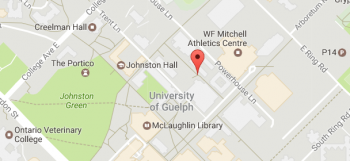 Accommodations are reasonable adjustments made in the interviewing process and in the workplace that allow a person with a disability to apply for jobs and fully perform the duties of a position. Accommodations level the playing field and help people to reach the same outcomes as their peers, just using a modified process.
Accommodations are reasonable adjustments made in the interviewing process and in the workplace that allow a person with a disability to apply for jobs and fully perform the duties of a position. Accommodations level the playing field and help people to reach the same outcomes as their peers, just using a modified process.
Most accommodations are simple to enforce and relatively inexpensive – here are some examples:
- Providing applicants with the interview questions ahead of time
- Flexible work schedules
- Adding computer software such as text to speech or screen magnifiers
- Alternative communication methods
- Moving the workspace to an environment that is more quiet or with better lighting
As a University of Guelph student, you may have received academic accommodations from Student Accessibility Services on campus. Review our document on Academic Accommodations Translated into Employment Settings [1] to see how your academic accommodations may translate into the workplace.
When it comes to obtaining accommodations, it’s important to understand that it’s your responsibility to communicate your need for an accommodation by disclosing your disability. You may encounter employers who have not experienced hiring individuals with disabilities or have not implemented accommodations before, but know that it is your legal right to receive necessary accommodations (within reason – see below).
The Ontario Human Rights Code [2] and the Canadian Human Rights Act [3] both legislate that employers cannot discriminate against persons with disabilities and requires employers to provide reasonable accommodations. Be aware of your legal rights by reading over the legislation and the related guides. If decoding legal jargon isn’t your thing, here are the basics of what you need to know:
-
Legally, you do not have to disclose unless your disability will impact your ability to do the job or puts the safety of your co-workers at risk.
-
You have the right to confidentiality and respectful treatment of information about your disability. This means if you inform your supervisor about your disability, they cannot tell anyone else without your consent.
-
Your employer cannot treat you less favorably than an employee without a disability.
-
Your employer must grant reasonable accommodation requests in a timely manner and cover all related costs.
-
Employers must provide accommodations up to the point of undue hardship [4], meaning it would be too expensive for the financial survival of the organization or it would violate health and safety requirements.
There are many community and government organizations that can provide more information about and funding for obtaining accommodations. Click here to see a list of local resources. Click here to view additional Accommodation Resources. [5]


